-
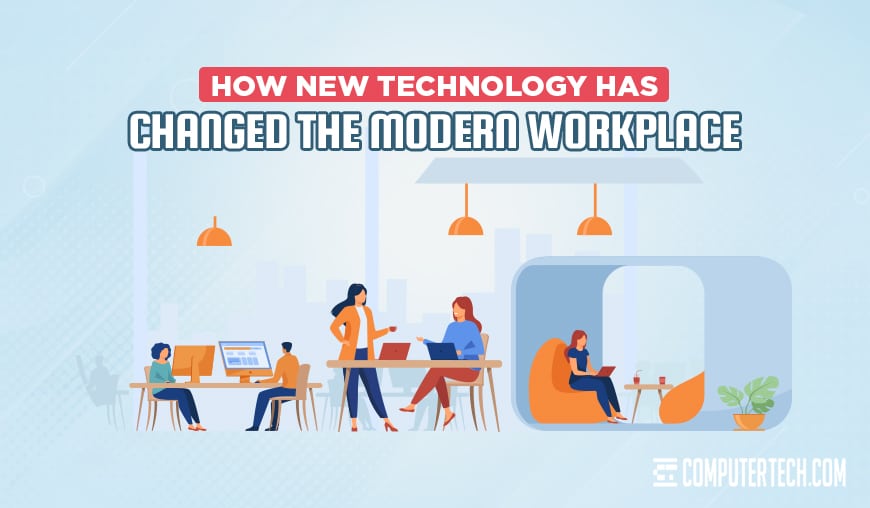
Technology is a growing industry in modern America, as we have come to rely more and more on the convenience and efficiency that technology can offer us. While the change in our personal lives is highly apparent, new technology also means revolutionary practices in the office as well. As technology improves, so to do our practices at work as we can perform more complicated tasks with ease.
The more upgrades office equipment receives, the more the employees can accomplish. However, whether you are an employee or employer, you might be more curious about how this technology impacts the workplace. With this article, we hope to clarify how technology can completely reinvigorate your workplace.
The Power of VoIP
One of the most common technological additions to the office involves the inclusion of Voice over Internet Protocol (VoIP) communications. VoIP is a common sight in many offices, even if you are not aware that you are looking at it. This prevalence is because VoIP technology relates to an old form of technology that is constantly evolving to remain relevant in modern times, the landline phone.
You have most likely seen that most professional offices use landline telephones for interoffice and official external communications. Despite the prevalence of mobile phones, landlines have remained a common fixture in the average office.
This fixture is because they have gone through radical changes that have turned landlines from a traditional form of communication into an adaptive nexus for connection to other communication mediums. One of the most apparent features of VoIP-capable landlines is the ability to transcribe voicemails and then forward a copy of the transcription to your corporate e-mail address. However, this is far from the extent of a VoIP system’s capabilities.
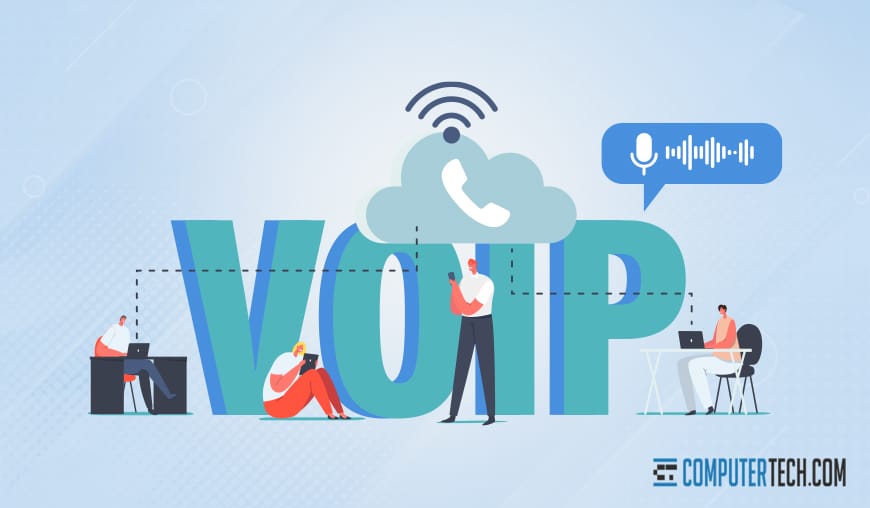
VoIP serves as a way of unifying office communications across multiple mediums. E-mail, phone calls, and even video conferences can all be regulated via a VoIP-capable landline system. As a result, VoIP allows you to minimize the downtime between responses to correspondence in or out of the office, increasing productivity. It also allows teams working on the same project to effectively collaborate, communicate, and cooperate to ensure the project is completed quickly and efficiently.
Essentially, you will be able to make a phone call to invite a coworker to an internal Zoom call while simultaneously e-mailing them the link through the same number. This functionality is because most VoIP systems also tie the employee’s phone extension to their issued e-mail address.
VoIP has become a staple of office communication that was only possible due to the advances in Internet-based technology and modern computers. But, of course, the main issue with implementing VoIP is knowing exactly how to install it in the office. Yet, VoIP is far from the most advanced features available to a technologically literate workplace.
Automation is On the Rise
For years before the innovation of contemporary technology, simple tedious tasks needed to be completed manually. A hassle that most employees likely resented since they were time-consuming and outright irritating in their frequency. However, modern technology has also rescued workers from these essential yet irritating tasks. This freedom is thanks to the rise of automation software that allows minor clerical tasks that need to be completed regularly via intuitive programs that will automatically perform them on a schedule.
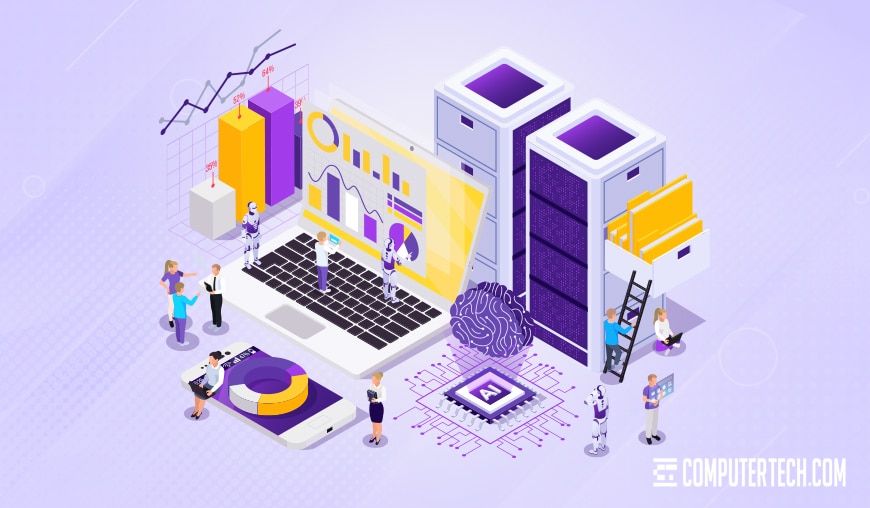
Much automation software ties back into maintaining a VoIP-capable system in the office, but there are independent applications that can also be used for the same purpose. For example, an e-mail comes in from a potential client who wants to set up an appointment for a specific date and time. Automation/VoIP software will enable you to click a button to update the relevant calendars with no further input.
Automation will help cut back on the nitpicky tasks that are so irritating that they get put off. While this will not necessarily revolutionize your company, it will enhance the efficiency of these tasks’ completion and minimize the frustration of the people performing them—something of a quality-of-life update for office tasks.
Remote IT Support
Nothing devastates productivity more than when the technology we have come to rely on begins to suffer from issues. This problem is the downside of technology in the workplace. Though computer systems certainly ease the effort put into a task and are far more efficient, they are prone to damage. This risk is especially true when dealing with computers that can develop software faults. These faults can cause computers to suffer from speed issues, fail to execute programs, or even stop functioning correctly altogether. In the early days of computer use, specialists would come to repair the issue personally.
Unfortunately, waiting for an IT expert to fix the problem results in excessive downtime that you likely would prefer to avoid. If you outsource your IT needs to an independent firm rather than an in-house IT department, the problem is worse. Imagine, if you would, an employee’s computer failing due to some software fault they cannot resolve on their own. Initially, a call would have been made to a representative from the company’s IT service.
If it was an in-house department, the technician would need to be available, travel between departments to reach the employee’s office, and then get the explanation of the issue before attempting to diagnose it. This process involves a fair amount of downtime between ticket creation and issue resolution.
That is time lost permanently waiting for the issue to be resolved. The downtime was even worse for outsourced IT, requiring technicians to drive from their building to yours, find the employee’s office, and get to work. In large cities like New Jersey, where the IT firm’s building could be on the other side of the city, this is a wait that might be too large a sacrifice.

However, nowadays, the IT technician does not have to be in the same room as the problematic computer unless the issue pertains to hardware rather than software. And that is a much rarer issue. So most IT firms use remote IT programs that allow them to control another computer from their systems as if they were sitting right in front of the screen. This freedom allows them to run diagnostic checks and resolve the issue without getting out of their chair. This functionality also effectively eliminates the downtime involved in waiting for the technician to arrive.
Data in the Clouds
Every company has essential information that needs to be accessed. Law firms need client information. Hospitals need patient information. Commercial companies need consumer reports and financial information. Information is the backbone of any successful business.
Back in the day, the only way to get ahold of essential information was to maintain physical copies since digital data was more of a hassle to create. However, when the ability to scan documents into images became viable, we could store information on specific computers, making it easier to have information sent to the ones who needed it via inter-office communications.
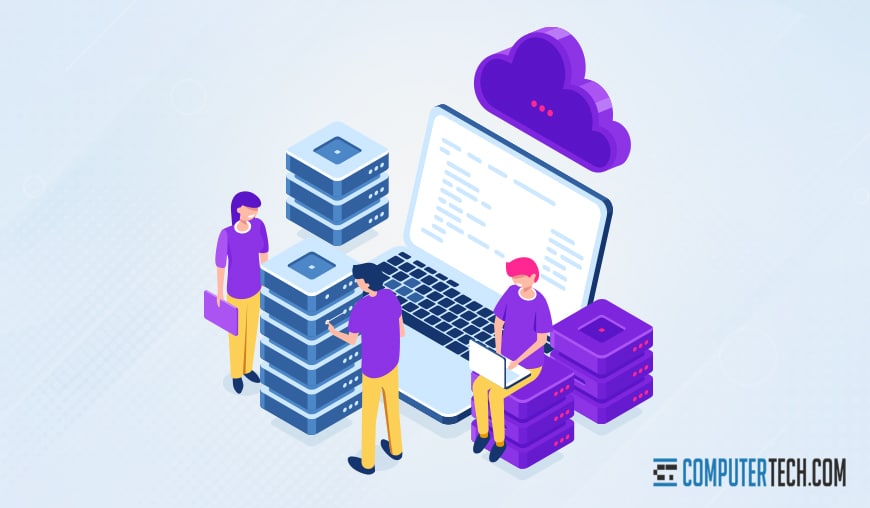
Nowadays, however, a far more effective alternative has rewritten the rules on accessing data. Instead of storing to multiple devices or a central device for redistribution, modern servers can be remotely accessed by multiple computers. This remote access has made accessing essential information as simple as logging into the server. This access eases the process and prevents unauthorized access to information by employees. In addition, these servers can have folders restricted by machine or user so that only the one authorized to access it can.
Furthermore, there are ways to introduce data to a system that allows access when not in proximity to the server by using cloud storage. Cloud storage allows information to be kept in Internet-based servers that can be accessed by any authorized machine or user from anywhere. In a world where remote work is becoming the norm, this is an essential function that will allow employees to remain effective no matter where they are.
Need Some Backup?
There is yet another significant benefit to modern technology in the workplace, and it does tie back into the benefits afforded by data servers and cloud services. Nothing is more catastrophic than when data is erroneously deleted or otherwise lost. Whether due to corrupted data, a hostile hacking attempt, or a simple malfunction, data being lost is a crippling event to companies worldwide. Fortunately, this issue has been addressed by contemporary technology as well.
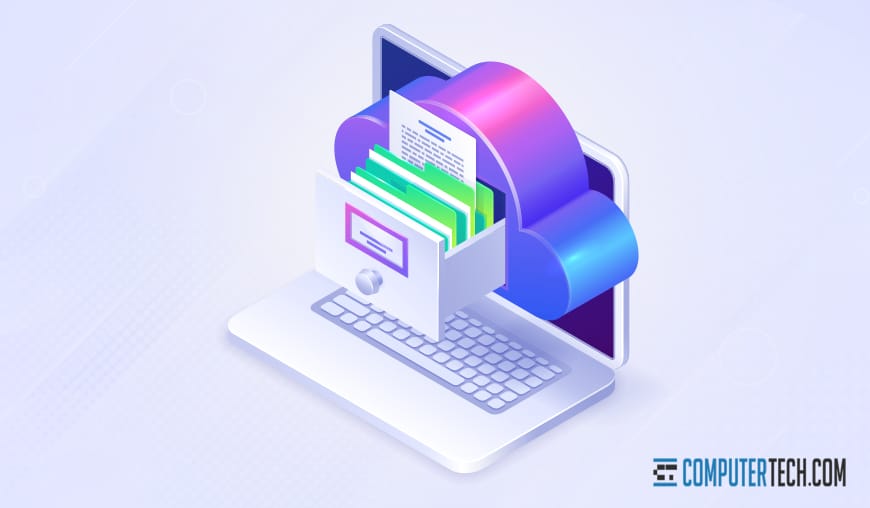
Virtually every company uses data backups that can be used to restore lost or corrupted data nearly instantaneously. Most backups are regularly maintained and monitored to ensure that the backup files are not corrupted and will be updated as more information is introduced to maintain the integrity of the backup. Disaster recovery services are vital and will keep you from having to scramble if an important file is lost for any reason. The ability to keep backup servers is arguably one of modern technology’s most important technological developments.
However, more valuable resources remain that make modern technology such a boon to a company’s success.
Microsoft 365
Now, we know what you are probably thinking. Microsoft Office is hardly a major technological development, and it has been around for decades. However, Microsoft 365 is more than just a text editor software like Word or a chart creation software like Excel. Microsoft 365 doubles as an office hub program that allows access to e-mail, calendars, and other essential tools that can help keep employees on track. The complete 365 suite allows coordination and is a VoIP-capable program.
Through Microsoft 365, you will be able to set appointment reminders, assign tasks, create teams, and communicate with your staff via e-mail. It also has access to the Microsoft Office software and allows your employees to share their documents to maximize their ability to cooperate on shared projects. Essentially, Microsoft 365 allows you to keep tasks on schedule, and your staff informed.
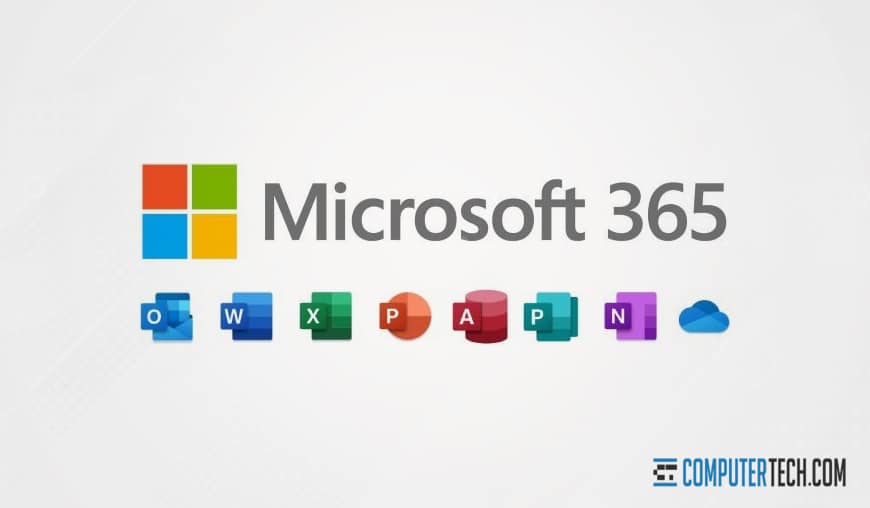
Even personal calendars can be shared so that people hired to maintain your schedule can view your appointments, add new ones, or adjust existing ones without waiting to hear about them since the calendar will inform you of the changes. All of this happens without your schedule management professional having to leave their seat. When hooked up to a VoIP system, Microsoft 365 further shines by allowing all the automation and communication linkage outlined by those technological marvels.
Technically Speaking…
Modern technology has changed not only the tools we use to conduct business but also the way we conduct business. With all the modern technology we have to draw on, we can focus on remote service and effectively maintain data. However, this is far from the limit of what we will be capable of. Technology is constantly being improved upon and evolving to do more and more with every passing year. As technology continues to improve, so too will the way we conduct our business. However, even as it evolves, technology will always need regular maintenance to ensure there are no issues.
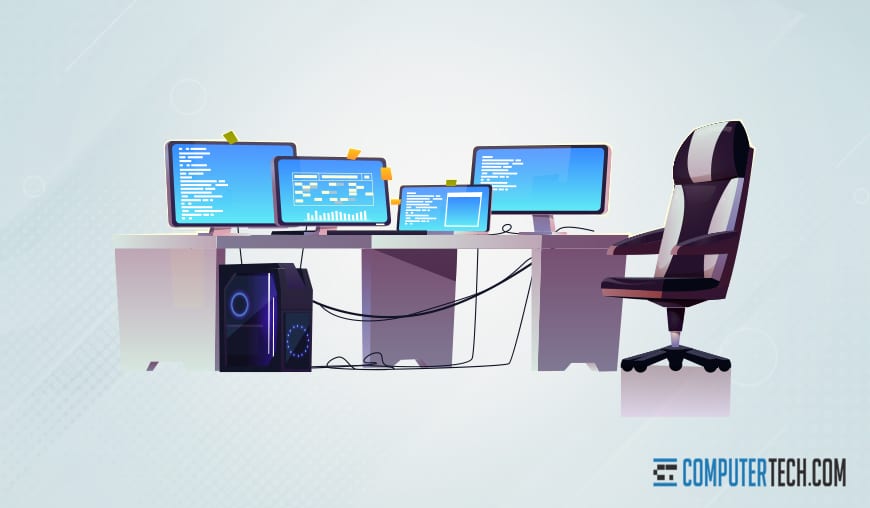
We at Computer Tech believe that information technology services are essential to any successful business since computers are such a crucial tool. However, while technology offers many benefits, some of them can only be successfully implemented and executed by a qualified IT technician. Therefore, we offer our services to keep your machines up and running and offer many of the services outlined above. So, if you need IT services to keep your office up and running, contact us today and see just what we can do for you.
Additionally, if you have any comments, questions, or concerns regarding your company’s IT needs, what new technology you can adopt, or anything similar, please also feel free to reach out and contact us at any time. Researching and figuring out what would be best for your company’s IT needs isn’t an easy task, so it’s vital to make sure you understand what you’ll need. We would be more than happy to answer and assist with any of your questions or concerns that you or your company may be having. We’re standing by and ready to help at a moment’s notice.
About The Author
Herman
Herman is the lead team member here at Computertech.com. He’s been in IT for over 20 years and has expertise in our various IT Services including Microsoft Azure, Microsoft 365, Microsoft Teams and even Computer Security.
No related posts.
IT Support | IT Services | IT Consultant | Computer Support
Speak to a Human (856) 347-2282
- Home
- About Us
- Services
- IT Support
- Managed IT Services
- IT Consulting and Strategy
- IT Security Services
- IT Infrastructure Services and Networking
- Help Desk and Onsite Support
- Communication and Collaboration
- Specialist IT Services
- Data Backup and Disaster Recovery
- Cloud Computing
- Optimizing Network Consulting Services
- Remote Monitoring and IT Management
- Business Computer Services and Consulting
- Blog
- Contact Us
Navigation- Home
- About Us
- » About Computer Tech
- » What To Expect
- Services
- » IT Support
- » Managed IT Services
- » IT Consulting and Strategy
- » IT Security Services
- » IT Infrastructure Services and Networking
- » Help Desk and Onsite Support
- » Communication and Collaboration
- » Specialist IT Services
- » Data Backup and Disaster Recovery
- » Cloud Computing
- » Optimizing Network Consulting Services
- » Remote Monitoring and IT Management
- » Business Computer Services and Consulting
- Blog
- Contact Us
How New Technology Has Changed the Modern Workplace
In need of IT Services or IT Support? Call us today at (856) 347-2282
About Us
Computer Tech is an IT Consultant \ Computer Consultant firm providing Computer Support, IT Support and IT Services in South Jersey, IT Support North Jersey, IT Services Delaware, IT Services New Jersey, Philadelphia Pennsylvania.
(856) 347-2282Get started:
Managed IT Services
Nationwide IT Support
Managed IT Support New Jersey- Pros and Cons of Outsourced SOC (Security Operations)
- How to Find and Eliminate Wi-Fi Interference in the Office
- 7 Tips to Wire Up an Office to Maximize Wi-Fi Speed
- Can You Still Recover Hard Drive Data if It’s Water Damaged?
- How New Technology Has Changed the Modern Workplace
- The Pros and Cons of Outsourcing Your IT Department
- Custom Gaming Installations for New Jersey Businesses
- Computer Installation in New Jersey – How Does It Work?
- How to Hire an IT Team to Build an Office Network
- The Benefits and Future of Remote IT Support for Businesses
Newsletter
Computer Tech, LLC.
105 Market Pl Suite 1, Glassboro, NJ 08028
(856) 347-2282
© Copyright 2025 HighTech Business Solutions. All Rights Reserved.



